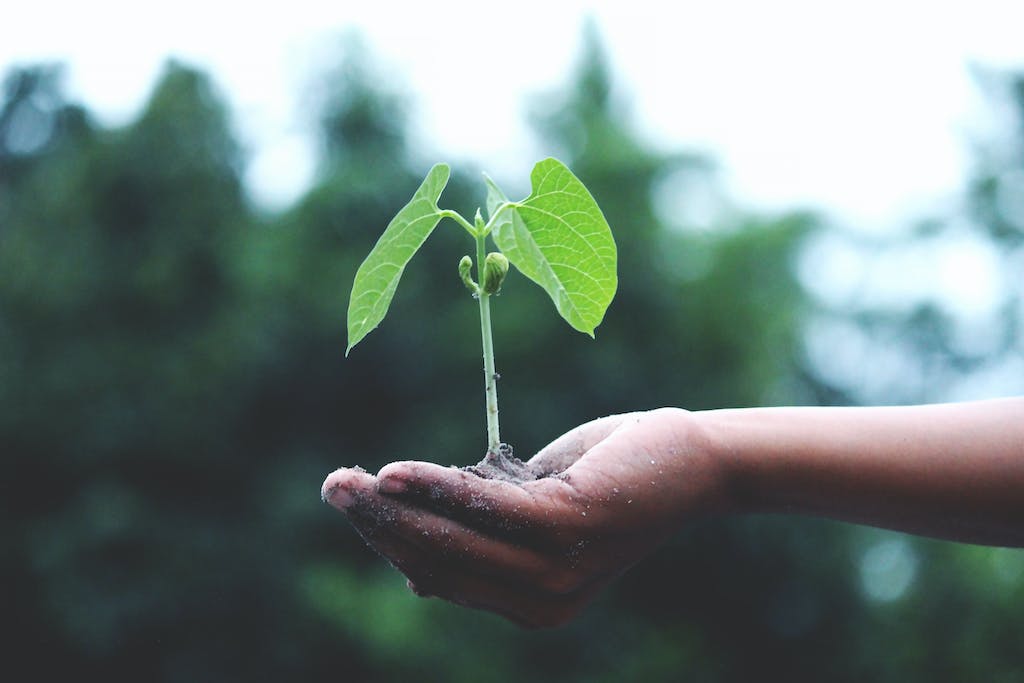Understanding the Stages of Addiction Recovery: A comprehensive guide to the different stages of addiction recovery, including precontemplation, contemplation, preparation, action, and maintenance, and the role of support systems and therapies in achieving lasting sobriety.

Introduction: Understanding Addiction Recovery as a Journey to Sobriety
Addiction recovery is a multifaceted journey that extends beyond mere abstinence from substance use. It begins with the pivotal step of acknowledging the existence of an addiction problem, which paves the way for the subsequent stages of detoxification, rehabilitation, and a lifelong commitment to maintenance to ensure lasting sobriety. This process is not linear; it is a complex path that involves navigating through various stages, each presenting distinct challenges and requiring specific, personalized interventions to aid the individual in moving towards recovery effectively. The acknowledgment of these stages and their inherent challenges underscores the significance of a tailored approach to recovery. It highlights the necessity for individuals to engage in continuous, active efforts to maintain their progress on the path to recovery. Such efforts are crucial in preventing relapse and ensuring that the journey towards sobriety is successful and sustainable. This comprehensive understanding of the addiction recovery process emphasizes the need for personalized care, underscoring the importance of adapting the recovery plan to meet the unique needs and circumstances of each individual.
The Stages of Addiction Recovery Explained
 Precontemplation
Precontemplation
In the precontemplation stage, individuals often remain in denial about their addiction, not recognizing the negative impacts their substance use has on themselves and their relationships. This lack of awareness or outright dismissal of the problem makes it challenging to initiate change since the individual does not yet see the need for it.
Contemplation
As awareness begins to dawn, individuals in the contemplation stage start acknowledging the consequences of their addiction. They weigh the pros and cons of continuing their substance use versus making a change. This stage is marked by ambivalence but also by an increased openness to consider recovery options.
 Preparation
Preparation
Preparation is a pivotal stage where individuals start to take action towards recovery. They may begin by seeking information, reaching out to professionals, and starting to build a strong foundation of motivation and readiness for significant changes. An example of building urgency in this stage could involve someone setting a quit date or sharing their decision to recover with a trusted friend or family member to start creating a support network.
 Action
Action
This stage involves active participation in treatment programs, therapy sessions, and support groups. Individuals work to implement coping strategies to manage withdrawal symptoms and cravings, often facing the challenge of adjusting to life without substance use. An example here could include someone attending daily therapy sessions and using learned coping mechanisms to deal with triggers.
Maintenance
During maintenance, the focus shifts to sustaining the changes made during the action stage and preventing relapse. This involves continuing to practice healthy lifestyle changes and coping strategies to support sobriety and overall well-being. Individuals might, for instance, engage in regular physical activity and meditation to manage stress without resorting to substance use.
 The Role of Support Systems and Therapies
The Role of Support Systems and Therapies
The journey of addiction recovery is markedly enhanced by the presence of robust support systems and the application of targeted therapies. Support networks, comprising family, friends, and recovery communities, act as a critical backbone, offering not only emotional encouragement but also practical guidance and a sense of accountability. These networks become especially vital during challenging times, providing the reassurance and motivation needed to continue on the path of recovery. For instance, a recovering individual might lean on a support group to navigate the stresses of reintegration into daily life, finding solace and strength in the shared experiences and wisdom of peers who have faced similar struggles.
Therapeutic interventions, on the other hand, address the psychological aspects of addiction, digging deep to unearth the root causes and equip individuals with the tools necessary for long-term sobriety. Cognitive-behavioral therapy (CBT), for example, empowers individuals to recognize and alter negative thought patterns and behaviors that fuel addiction. Meanwhile, motivational interviewing fosters a collaborative environment where individuals can explore their ambivalence towards change, ultimately enhancing their motivation to commit to sobriety. These therapies, often personalized to fit an individual’s specific needs, are fundamental in not only overcoming addiction but also in preventing relapse by instilling effective coping mechanisms and promoting mental resilience. Together, support systems and therapies form a comprehensive approach to addiction recovery, addressing both the social and psychological facets essential for achieving and maintaining sobriety.
Challenges in Early Sobriety
In the early stages of sobriety, individuals often confront a myriad of challenges that test their resilience and commitment to recovery. One of the most pervasive issues is the sense of isolation and insecurity that can emerge as they adjust to a life devoid of substances they previously relied on for comfort or escape. This transition can feel particularly daunting, as the familiar coping mechanisms are no longer available, leaving a void that must be filled with healthier alternatives. The fear of judgment from peers, along with the struggle to rebuild broken relationships, can exacerbate feelings of loneliness and vulnerability during this critical period.
Another significant hurdle in early sobriety is managing the emotional and psychological stressors without reverting to substance use. The initial euphoria of deciding to quit can quickly give way to the reality of withdrawal symptoms, cravings, and the confrontation with issues that were previously numbed by addiction. For example, someone who used alcohol as a means to cope with anxiety may find themselves facing heightened anxiety levels without their usual means of relief. This underscores the critical importance of developing effective coping strategies, such as engaging in therapy, mindfulness practices, or physical activity, to navigate these challenges. Moreover, the establishment of a robust support network, including friends, family, and support groups, can provide the encouragement and understanding needed to overcome these early obstacles in the journey to sustained sobriety.
Relapse Prevention Strategies
Relapse prevention strategies are an essential component of the addiction recovery process, designed to equip individuals with the tools they need to maintain long-term sobriety. A personalized relapse prevention plan is the cornerstone of this approach, tailored to identify and address the unique triggers and risk factors of each individual. For example, someone who recognizes stress as a primary trigger for substance use might incorporate stress management techniques, such as exercise or meditation, into their daily routine. Additionally, mindfulness practices can help individuals remain present and aware, reducing the likelihood of succumbing to cravings or impulsive behaviors that lead to relapse.
Beyond individual coping strategies, ongoing therapy and participation in support groups offer a vital safety net throughout the recovery journey. These platforms not only provide a space for individuals to share their experiences and challenges but also foster a sense of community and belonging, which is crucial for emotional support. Support groups, in particular, can offer insights and encouragement from peers who are navigating similar paths, emphasizing the importance of collective strength in overcoming addiction. Ultimately, the combination of personalized prevention plans, mindfulness, stress management, therapy, and community support forms a comprehensive approach to relapse prevention, empowering individuals to sustain their sobriety and progress in their recovery journey.
The Non-linear Path of Recovery
The journey through addiction recovery is far from a straightforward or predictable path. Acknowledging that recovery is a non-linear process is critical for setting realistic expectations and fostering resilience among those seeking sobriety. Individuals might experience periods of significant progress, where the path forward seems clear and attainable. However, it’s common to encounter setbacks or challenges that test one’s commitment to recovery. For example, encountering a highly stressful life event may push an individual who has been in the maintenance stage back into contemplating previous habits, demonstrating the fluid nature of recovery stages. This ebb and flow highlight the necessity of patience, perseverance, and a willingness to continually engage with the recovery process, even when facing discouraging moments.
Moreover, the non-linear nature of recovery underscores the importance of ongoing support and the readiness to seek help whenever necessary. Whether it’s re-engaging with therapy after a relapse or seeking out a support group during times of temptation, the journey demands adaptability and the courage to ask for help. Recovery centers and therapists often stress the value of building a strong support network that understands the complexities of addiction, capable of providing encouragement and insight during both the highs and lows of the recovery process. This network, along with a personalized relapse prevention plan, plays a pivotal role in navigating the unpredictable terrain of recovery, ensuring individuals have the resources and support needed to move forward, regardless of temporary setbacks.
Conclusion: Embracing the Journey Towards Lasting Sobriety
The journey towards lasting sobriety is a profound transformation that requires understanding, patience, and unwavering support. Recognizing the stages of addiction recovery is not just beneficial but crucial for individuals seeking to overcome addiction. This knowledge arms them with the insights needed to tailor their recovery process, ensuring it addresses their unique challenges and leverages their strengths. It underscores the indispensability of personalized care, which might range from one-on-one therapy sessions to specialized group therapy, each playing a pivotal role in addressing the multifaceted nature of addiction. Furthermore, the journey underscores the importance of ongoing support, from both professionals and peers, in navigating the ups and downs of recovery. It’s a process that celebrates small victories while preparing for potential setbacks, always with an eye towards long-term sobriety and well-being.
Active engagement in one’s recovery process is another cornerstone of achieving lasting sobriety. This involves not just participating in treatments and therapies but also making significant lifestyle changes that support a sober life. Examples of this could be developing new hobbies that do not involve substance use, building relationships with individuals who support one’s sobriety, or even changing one’s environment to reduce triggers. The journey of recovery, as shown through countless success stories, is one of constant learning and adaptation. Individuals learn to identify and manage triggers, develop healthier coping mechanisms, and gradually rebuild their lives in ways that support sobriety. The path may not be linear, as setbacks can occur, but with the right support system and a commitment to recovery, individuals can navigate these challenges and move closer to their goal of a sober, fulfilling life.








